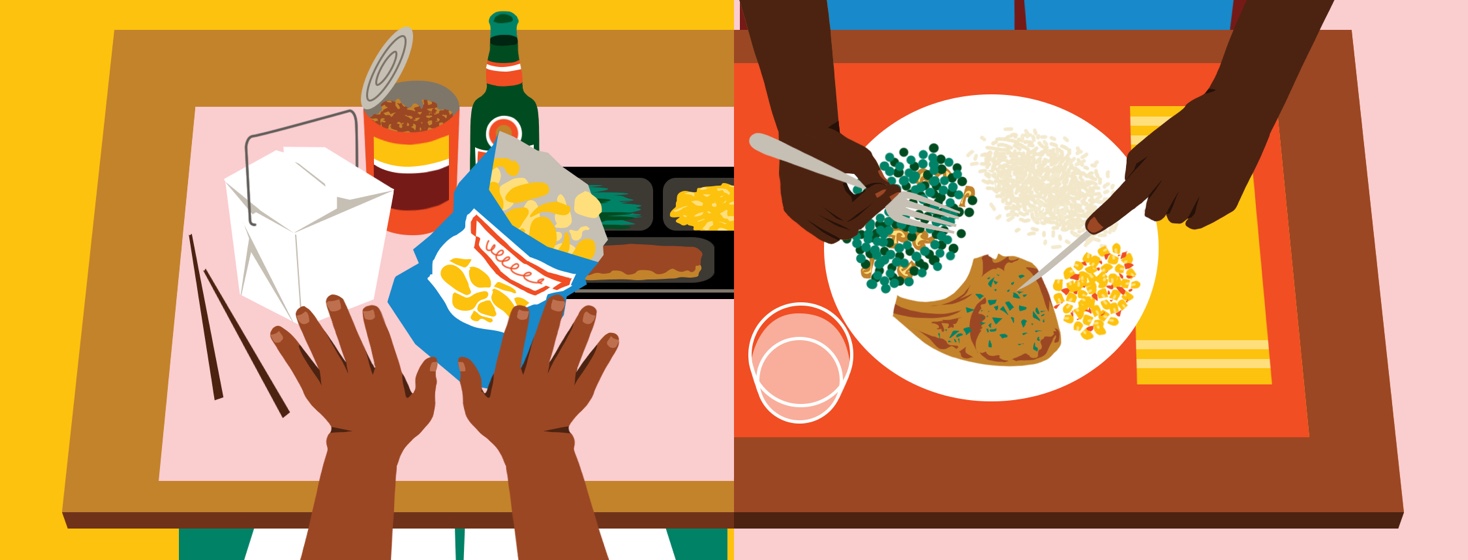Dietary Tips for Hepatitis C, Cirrhosis, and Liver Disease
A very important proactive step toward taking care of your liver with hepatitis C, cirrhosis, and liver disease is with your diet. Diet is something within our control. Learn what to avoid as well as what is healthy for your liver.
What to avoid
No alcohol of any type: Hepatitis C causes inflammation and damage to liver tissue, which leads to impaired liver function. The use of alcohol of any type can accelerate liver damage.
The combination of alcohol and hepatitis C can continue to cause further damage, leading to cirrhosis (permanent scarring), which increases the risk of liver cancer and liver failure. Drinking alcohol of any type with hepatitis C, cirrhosis, and liver disease is like throwing gasoline on a fire. It’s not worth it.
Avoid salt: Salt comes from seasoning the food we eat, in the food itself, and how it’s prepared. Salt causes problems with liver disease, especially with cirrhosis, which can contribute to ascites (collection of fluid and swelling) in the abdomen and legs. Collection of fluid and high intake of salt can also contribute to other liver-related problems.
Avoid processed foods: Processed foods are loaded with high sodium (salt), high sugar, unhealthy fats, additives, and chemicals which can harm the liver. Do not eat anything out of a bag, Box, can or jar. A good dietary rule of thumb to guide you: If it grows from the earth or has a mother, it’s safe to eat it. If it’s altered from its fresh form, don’t eat it. (One could argue potato chips, for example, are from potatoes which are grown from the earth, but potato chips are not in its fresh form, they have been processed which makes them not healthy to eat.)
Do not eat out
Unless you are extremely mindful and know how your food has been prepared, it’s best to avoid eating out with liver disease, especially with decompensated cirrhosis. Restaurants typically highly season their food and/or prepare with ingredients that are unhealthy for liver disease patients. This can contribute to fluid build-up, and unhealthy weight gain which can lead to complications with fatty liver disease and cirrhosis.
What Helps
Eat fresh or frozen: Eating fresh or frozen is best. These contain fewer chemicals and have higher nutrients. Eat lean meat, poultry, or fish and lots of fresh or frozen fruits and vegetables. Eating fresh or frozen makes it easier for your liver to help break down and store nutrients.
Steaming, grilling, sautéing, baked, or broiled is best: How foods are prepared is very important. Avoid frying. When seasoning foods, choose herbs or no-salt seasoning.
If overweight, lose weight: Excess weight can contribute to fatty liver disease and liver damage along with extrahepatic complications like diabetes, high blood pressure, and cancer. Being mindful of healthy portion sizes will help. Keeping a food diary with tracking your daily food, calorie, and nutrient intake is a great help in losing weight. Being in a healthy weight helps your liver work better.

Join the conversation